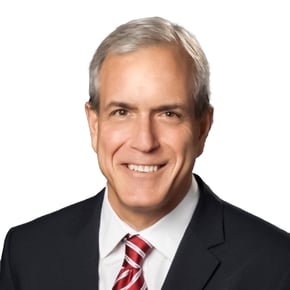The world of work is much more fluid now than it was back in my day. Everything is geared for quick pivots.
When I was twenty-five, I looked through the newspapers and trade journals for jobs (this was before the internet.). I'd mail a cover letter and résumé to each one that looked like a possibility, then wait weeks while I hoped to hear back from them. Today my children can find a job posting at lunch on their phone, apply for it that afternoon online, and, if they're dealing with a sharp company, get an offer within 24 hours. There is zero friction for them when they look externally for a new opportunity.
If it were just that easy, wouldn't the Great Resignation be cured? The fact of the matter is that there are a lot of learned habits in organizations that constitute what I like to call the "7 Deadly Sins of Talent.” Previously I wrote about the dangers of glorifying "best practices" and falling into a downward spiral of incrementalism. Today, I will talk about talent hoarding.
When I worked at Macy's about a decade ago, each part of the organization was called a 'pyramid.' Once you were brought into one, moving out of a pyramid didn’t happen very often. If you were any good at what you did, you could rest assured that it would be harder to move across the organization than to move up. Advancing up your designated corporate ladder was simply a matter of proving yourself and waiting for your turn in line.
So why was this?
First, the enterprise was functionally driven. Naturally, skill requirements in roles reflected that organizational structure. Second, in many ways, success was measured in functional metrics. The trend, therefore, was to hoard talent—usually the best—to maintain or improve the most meaningful ones. Finally, there was a general tendency to hesitate when taking chances on people, even if they had the talent to get the work done. The reasons why varied. Perhaps the boss wanted to protect the individual from the risk of failure. Maybe they knew the organization couldn't easily get the right talent to replace that person in their current role. Or perhaps they were concerned about how it might look if the person they promoted struggled in the new role.
These were all natural human behaviors. The problem was that they acted as a ceiling on the best people and their career ambitions.
“If you hoard talent, you risk losing it.”
I could understand how some of my Macy's Executive Committee colleagues were reluctant to share people outside their territory. Their thinking then was that it was better to hang on to their best people, even if that would be to the detriment of the organization, the talent, and/or themselves as leaders. To be fair, this predilection for hanging on to the “good” was endemic in the culture of many enterprises. And for a very long time, it had been a successful strategy in the history of this very successful company.
But times change (and have they ever changed!). Here we are in the era of the Great Resignation. The last thing we want to do is lose more talent.
I have learned there is another way to look at talent. I experienced it personally while working at PepsiCo in the 80s and 90s.
Over the course of twelve years, I had eight different jobs. Was I ready for each one of them? Definitely not. Each and every one was a stretch for me. That succession of "stretch assignments" kept me pushing myself to grow and learn because I knew that if I delivered what was expected of me and did it consistent with our values, I would have opportunities to be enormously successful. The thought of resigning or quitting PepsiCo never once crossed my mind in those dozen years because I was busy accepting the opportunities offered to me. I was happily expanding in my professional career in ways that I would never have if I were someplace that hoarded my talent.
Perhaps that is why I believe there is no greater strategy for attracting and retaining talent than promising really good people that, if they perform and grow, they will be given huge opportunities across the enterprise. State up front that you believe in being proactive about talent development. Share your track record in terms of giving people opportunities sooner in their career path, opportunities to do things they may not have access to in other organizations unwilling to take a risk on them. Include examples of what people have done with the opportunities you have given them. Do this, and you will have no need to hoard talent: you will naturally attract and retain the best.

